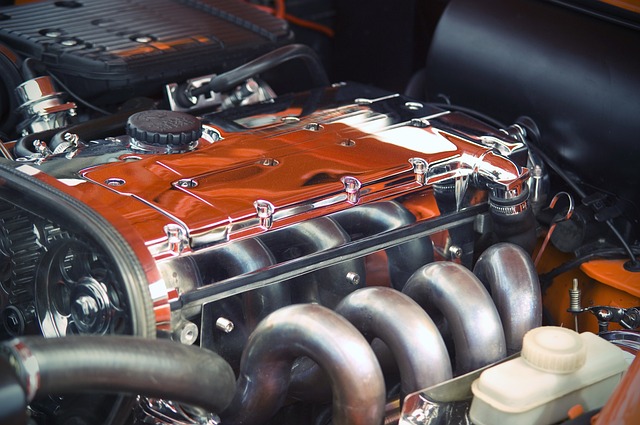Car tuning has surged in popularity among automotive enthusiasts. Many seek to enhance their vehicle’s performance, achieve better fuel efficiency, or simply personalize their ride. However, a crucial aspect that often gets overlooked is how car modifications impact your vehicle warranty. Understanding this relationship is essential for any car owner who is considering tuning performance.
In this article, we’ll delve into the nuances of warranties, how car modifications can influence them, and what steps you can take to ensure you don’t inadvertently void your warranty. Whether you’re contemplating ECU reprogramming, suspension lowering, or adding aftermarket parts, you’ll find valuable insights here.
Understanding Car Warranties
Definition of a Warranty
A vehicle warranty is a promise from the manufacturer or dealer to repair or replace certain parts of the vehicle if they fail due to manufacturing defects or normal wear and tear. It’s important to note that warranties vary by manufacturer and the specific terms of the agreement.
Types of Warranties:
- Bumper-to-Bumper Warranty: Covers almost everything except wear-and-tear items like tires and brakes. Typically lasts for three years or 36,000 miles.
- Powertrain Warranty: Covers the engine, transmission, and drivetrain components. Often extends up to five years or 60,000 miles.
- Emission Warranty: Specifically covers parts that affect emissions. This is usually mandated by the government for a longer period.
Understanding these different warranties will help you navigate how your tuning modifications may affect coverage.
Types of Warranties Relevant to Tuning
Knowing the types of warranties is just the beginning. The impact of car modifications on these warranties can vary significantly.
- Powertrain Warranties: Most susceptible to voiding. Modifications like turbocharger installation or changing the exhaust system can lead to warranty denials.
- Bumper-to-Bumper Warranties: Generally less impacted, but significant modifications could still trigger exceptions.
- Emission Warranties: Highly sensitive to tuning since many modifications can change emissions levels.
The Impact of Car Tuning on Warranties
How Car Tuning Affects Warranties
When it comes to tuning, the modifications you make can have serious implications for your warranty coverage. Here are some common modifications and their potential effects:
- ECU Reprogramming: Altering the engine control unit can enhance performance but often voids the powertrain warranty.
- Turbocharger Installation: Adding a turbocharger significantly increases engine output, which can lead to warranty issues if not done through authorized channels.
- Suspension Lowering: While this can improve handling, it may lead to suspension-related warranty claims being denied.
Case Study: A Chevrolet owner installed aftermarket performance parts without consulting the dealer. When a transmission issue arose, the dealership cited the modifications as a reason to deny warranty coverage.
Legal Aspects
Understanding the legal framework around warranties is crucial for any car owner looking to modify their vehicle. The Magnuson-Moss Warranty Act protects consumers by prohibiting manufacturers from voiding warranties simply because a consumer used aftermarket parts, unless they can prove the parts caused the damage. This act plays a vital role in safeguarding your rights as a vehicle owner.
Key Takeaway: If a modification causes a failure, the manufacturer must demonstrate that the aftermarket part directly caused the issue to deny warranty coverage.
DIY Tuning: What to Consider
Risks of DIY Tuning
While DIY car tuning can be a rewarding experience, it also carries risks that can affect your warranty. Common pitfalls include:
- Improper Installation: Mistakes during installation can lead to performance issues or even damage, potentially voiding your warranty.
- Lack of Documentation: Failing to keep records of modifications can complicate warranty claims down the line.
Best Practices for DIY Tuning
If you’re determined to modify your vehicle yourself, consider these best practices:
- Research Thoroughly: Before making any changes, consult your owner’s manual and warranty terms.
- Use High-Quality Parts: Invest in reputable aftermarket parts to minimize the risk of damage.
- Document Everything: Keep receipts and installation records, as these can be crucial for warranty claims.
Company-Backed Performance Modifications

Understanding Manufacturer-Approved Modifications
Many automakers offer performance modifications that are designed to enhance vehicle performance without voiding your warranty. For instance:
- Mopar Accessories: Chrysler’s performance parts line offers various enhancements that are backed by warranty.
- BMW Performance Parts: BMW’s in-house tuning options ensure that performance upgrades won’t jeopardize warranty coverage.
Advantages of Manufacturer-Approved Modifications
Choosing manufacturer-approved options comes with several benefits:
- Maintaining Warranty Coverage: You can upgrade your vehicle without fear of voiding your warranty.
- Enhanced Performance: These parts are designed to work seamlessly with your vehicle.
- Quality Assurance: Manufacturer-backed modifications often meet stringent quality and safety standards.
Quote: “Choosing performance parts that are backed by the manufacturer not only enhances your vehicle but also gives you peace of mind regarding your warranty.” — Auto Industry Expert
Navigating Warranty Issues
Steps to Take Before Tuning Your Vehicle
Before making any modifications, take the following steps:
- Review Warranty Terms: Understand what is covered and what might void your warranty.
- Consult with Your Dealer: Discuss potential modifications with your dealer for guidance.
- Document Current Conditions: Take photos and keep records of your vehicle’s condition before tuning.
How to Handle Warranty Claims After Tuning
If you’ve already modified your vehicle and need to file a warranty claim, consider these tips:
- Be Transparent: Clearly disclose any modifications made to the vehicle.
- Gather Documentation: Provide records of the installation and any relevant information.
- Stay Calm: If your claim is denied, don’t panic. You have rights under the Magnuson-Moss Warranty Act.
Conclusion
Understanding how car tuning affects your warranty is crucial for every car owner who wants to make car performance enhancements without jeopardizing their investment. By grasping the nuances of vehicle warranties, legal protections, and the implications of modifications, you can make informed decisions that enhance your driving experience while safeguarding your warranty coverage.
Final Thoughts
Whether you opt for professional tuning services or decide to dive into DIY car tuning, remember to prioritize your warranty. Engage with your dealership, choose high-quality aftermarket parts, and stay informed about your rights. Ultimately, a well-informed approach to tuning can enhance your vehicle’s performance while preserving the protection of your warranty.
Call to Action
Have you modified your vehicle and faced warranty issues? Share your experiences in the comments below! For those considering tuning, feel free to ask questions or seek advice from fellow enthusiasts.
Also Read More Article : Navigating Car Repair Costs
